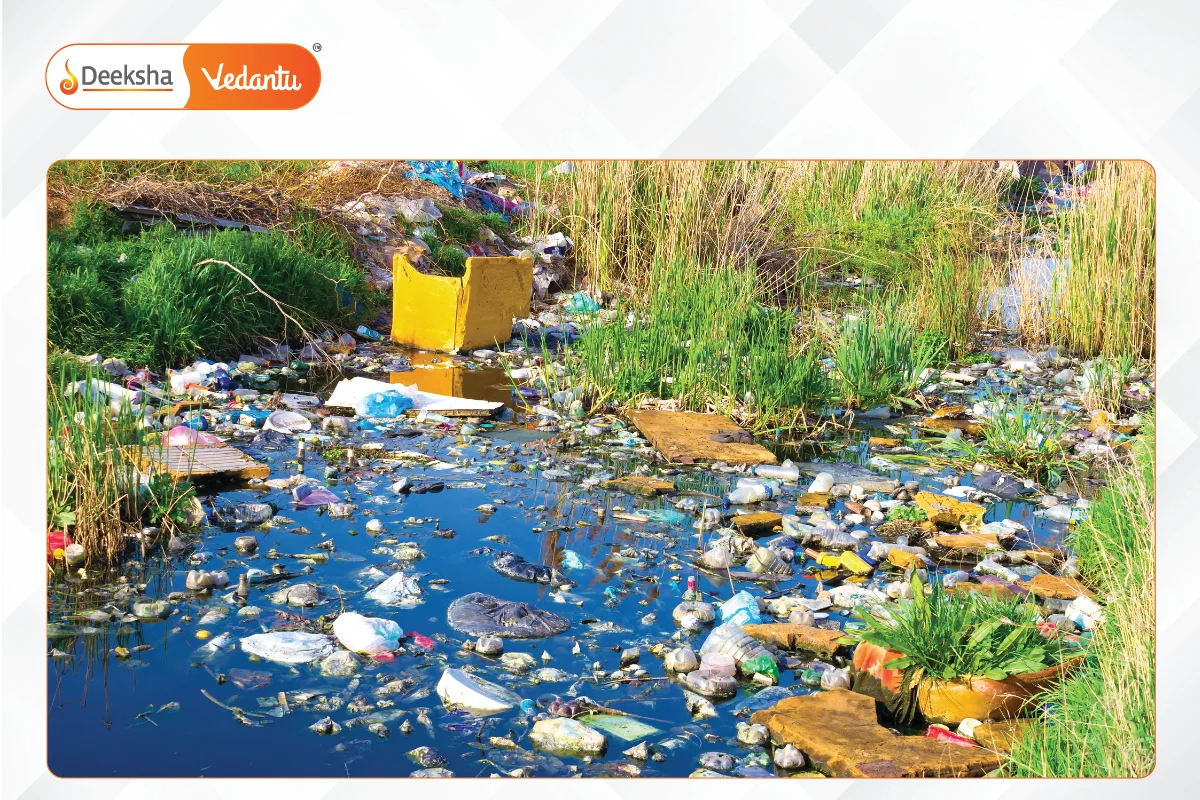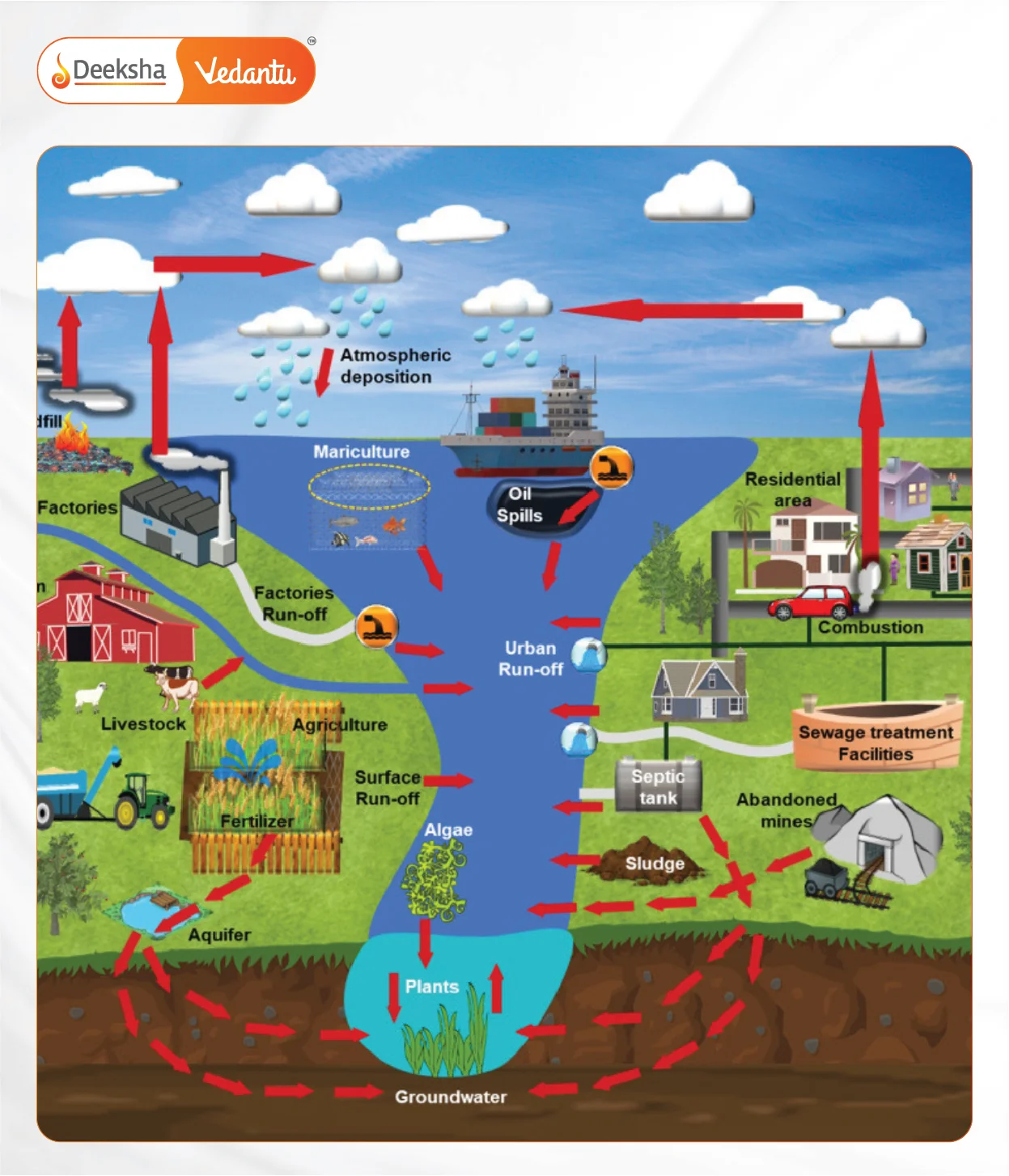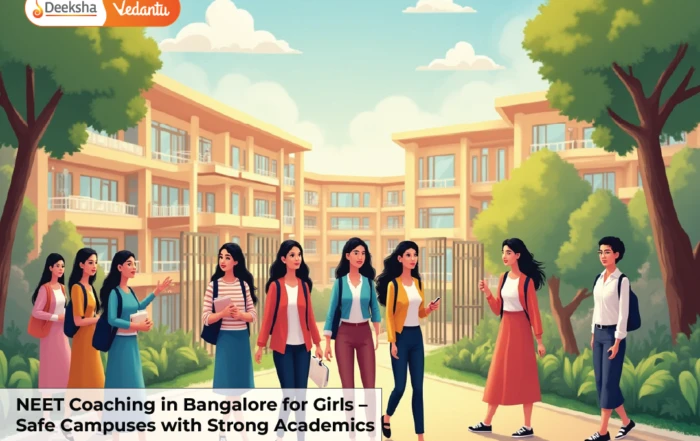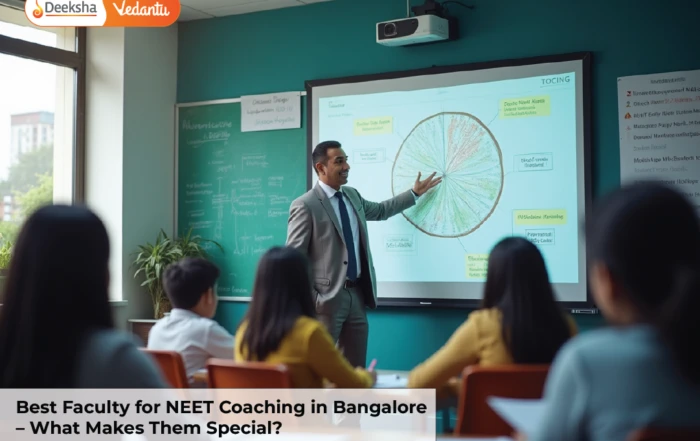What is Water Pollution?
Water pollution is the contamination of water bodies like rivers, lakes, oceans, and groundwater by harmful substances, often from industrial and agricultural sources. This pollution negatively impacts all living things that depend on water.

Sources of Water Pollution
- Urbanization
- Deforestation
- Industrial Effluents
- Social and Religious Practices
- Use of Detergents and Fertilizers
- Agricultural Run-offs (from insecticides and pesticides)

Water Pollution – A Modern Epidemic
Toxic chemicals are a major cause of water pollution. For instance, plastic waste pollutes water bodies, harming humans and ecosystems. Toxins from these pollutants can travel up the food chain, affecting humans. Around 6 billion kilograms of garbage are dumped into oceans each year, including industrial waste, untreated sewage, nuclear waste, and oil spills, which can devastate vast areas.
Effects of Water Pollution
- Aquatic Life: Pollution affects aquatic animals’ metabolism, behavior, and health, often causing death. Chemicals like dioxin, which accumulate in fish and other animals, can cause cancer and reproductive issues.
- Food Chain Disruption: Toxic substances like cadmium and lead can enter the food chain and disrupt it at higher levels, affecting animals and humans.
- Human Health: Contaminated water can cause diseases such as hepatitis, cholera, and other infectious diseases.
- Ecosystem Damage: Water pollution can critically damage ecosystems, altering and destroying habitats.
Pollution of the Ganges
The Ganges River in India is heavily polluted due to industrial effluents and religious activities like burials and cremations. This pollution causes serious health risks and threatens species like the Ganges River shark and dolphin. It’s predicted that by 2026, around 4 billion people will face water shortages, and currently, 1.2 billion people lack access to clean water.
Control Measures for Water Pollution
- Treat Sewage Waste: Instead of releasing sewage into water bodies, treat it first to reduce its toxicity.
- Use Water Hyacinth: This plant can absorb toxic chemicals like cadmium, helping to clean polluted water.
- Chemical Methods: Techniques like precipitation, ion exchange, reverse osmosis, and coagulation can help control water pollution.
- Reduce, Reuse, Recycle: Individuals can help by minimizing waste and reusing materials.
FAQs
Water pollution is the contamination of water bodies by harmful substances, affecting all life forms that depend on water.
- Treat sewage waste before releasing it into water bodies.
- Use plants like Water Hyacinth to absorb toxic chemicals.
- Apply chemical methods like precipitation and reverse osmosis.
- Reduce, reuse, and recycle materials to minimize waste.
The Ganges is heavily polluted due to industrial effluents and religious practices like burials and cremations. This pollution poses serious health risks and threatens local wildlife.
Toxic substances like cadmium and lead enter the food chain through contaminated water and accumulate in animals, disrupting the food chain at higher levels and affecting human health.
Contaminated water can cause diseases such as hepatitis, cholera, and other infectious diseases. Long-term exposure can lead to chronic health issues.
Pollution can harm aquatic animals’ health, behavior, and reproductive systems, often leading to death. Toxins accumulate in the food chain, impacting both aquatic and terrestrial life.
- Urbanization
- Deforestation
- Industrial effluents
- Social and religious practices
- Use of detergents and fertilizers
- Agricultural run-offs












Get Social